|






TexMol is molecular visualization software developed
at CVC that additionally encapsulates a complete suite of tools for calculating
structural attributes of bio-molecules available as PDB and PQR format.
This currently supported functionalities can be summarized as
- Multiple data and views
- Sequence selection
- Roving capability
- Batch processing capability
- Maya Plugin
More information about the detailed list of supported operations as well as user documentation,
supported platforms and download instructions are available
here.
|
|




VolRover (or Volume-Rover) is interactive multi-purpose image processing software developed at CVC. It can visualize three dimensional imaging data of any size (as big as terabyte) in a commodity PC or workstation and additionally supports the following image processing operations.
- Image Contrast Enhancement
- Filtering/Noise Reduction
- Image Segmentation
- Isocontouring
- Symmetry Detection (for Virus Maps)
- Boundary-free Image Skeletonization
More information about the detailed list of supported operations as well as user documentation, supported platforms and download instructions are available
here.
|
|
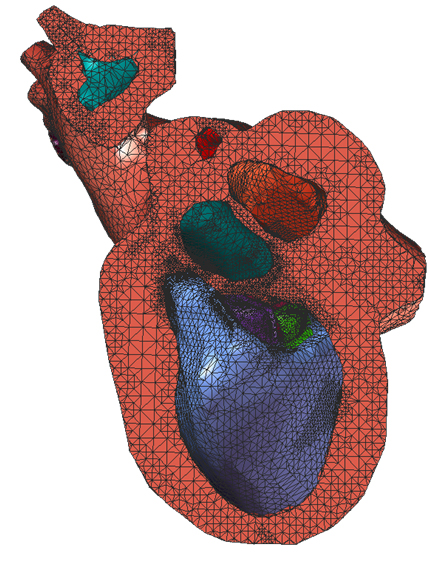
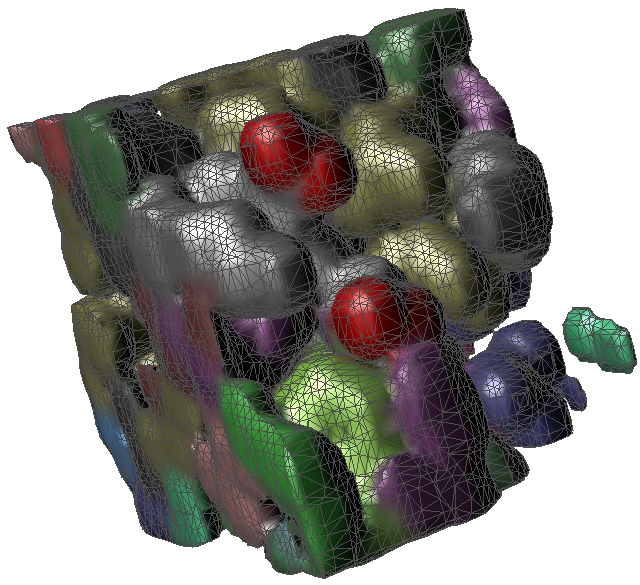
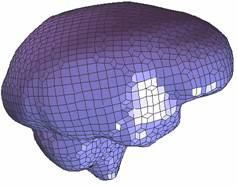
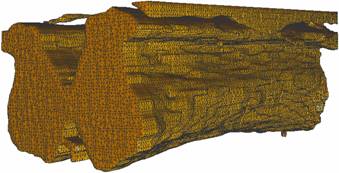
LBIE (Level Set Boundary-Interior-Exterior) is the multi-purpose meshing tool created at CVC which builds quality surface and volumetric mesh conforming to any level set from an imaging data. Variety of output mesh formats are
- Triangle Mesh for the Level-Set and Tetrahedral Mesh for the interior and exterior to the level set.
- Quadrilateral Mesh for the Level-Set and Hexahedral Mesh for the interior and exterior to the level set.
- Triangle-Tet or Quad-Hex combination for interval volumes defined by two level sets.
More information about the detailed list of supported operations as well as user documentation,
supported platforms and download instructions are available
here.

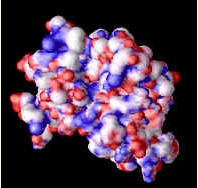
BioChemSIM is a package that can be used for analysis of differential and integral molecular properties (hydrophobicity, electrostatics etc.) and molecular dynamics. Input is a 3D structure of molecules (pdb or pqr format) from which it generates the SES (Solvent Excluded Surface) using Gaussian blurring and extracts a surface (triangular or quadrilateral) and volume (tetrahedral or hexahedral) mesh. The package is primarily built on top of LBIE (for meshing), Adaptive Gridding (for SES computation). It provides a generic platform to launch various simulation codes like APBS, FEM, BEM.
|
|
- Cross sectional image stacks
Tiling

Tiling contains a tracing program, which helps a user to generate a contour on one image; a tiling program, which creates triangle meshes for a stack of contours; and a tetrahedralizing program, which creates tetrahedra meshes from a stack of contours. For a detailed list of supported functionalities as well as download instruction click
here.
|
|
- Piecewise Linear Model -> Spline Model
Prism




Prism is a multi-purpose geometry modeling toolkit. It can perform reconstruction and many mesh related operations such as decimation, A-patch construction, normal calculation etc. For a detailed list of supported functionalities as well as download instruction click
here.
|
|
Interactive Web Portal
|
|
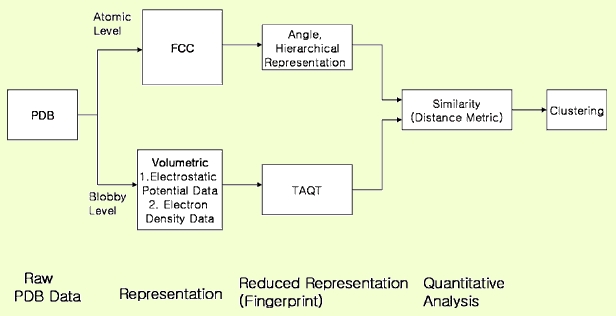
Molecular Signatures is to identify and distinguish biomolecules,
and develop clustering methods based on certain signatures or fingerprints.
The fingerprints are computed from both shapes and properties such as electrostatic potentials.
More information about the detailed list of supported operations as well as user documentation,
supported platforms and download instructions are available
here.
|
|

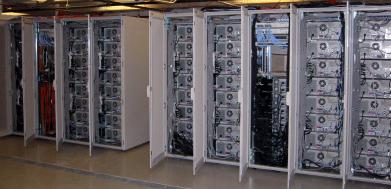
Visualization Portal aims to make our high-performance visualization software
and hardware available from scientist's desktops.
More information about the detailed list of supported operations as well as user documentation,
supported platforms and download instructions are available
here.
|